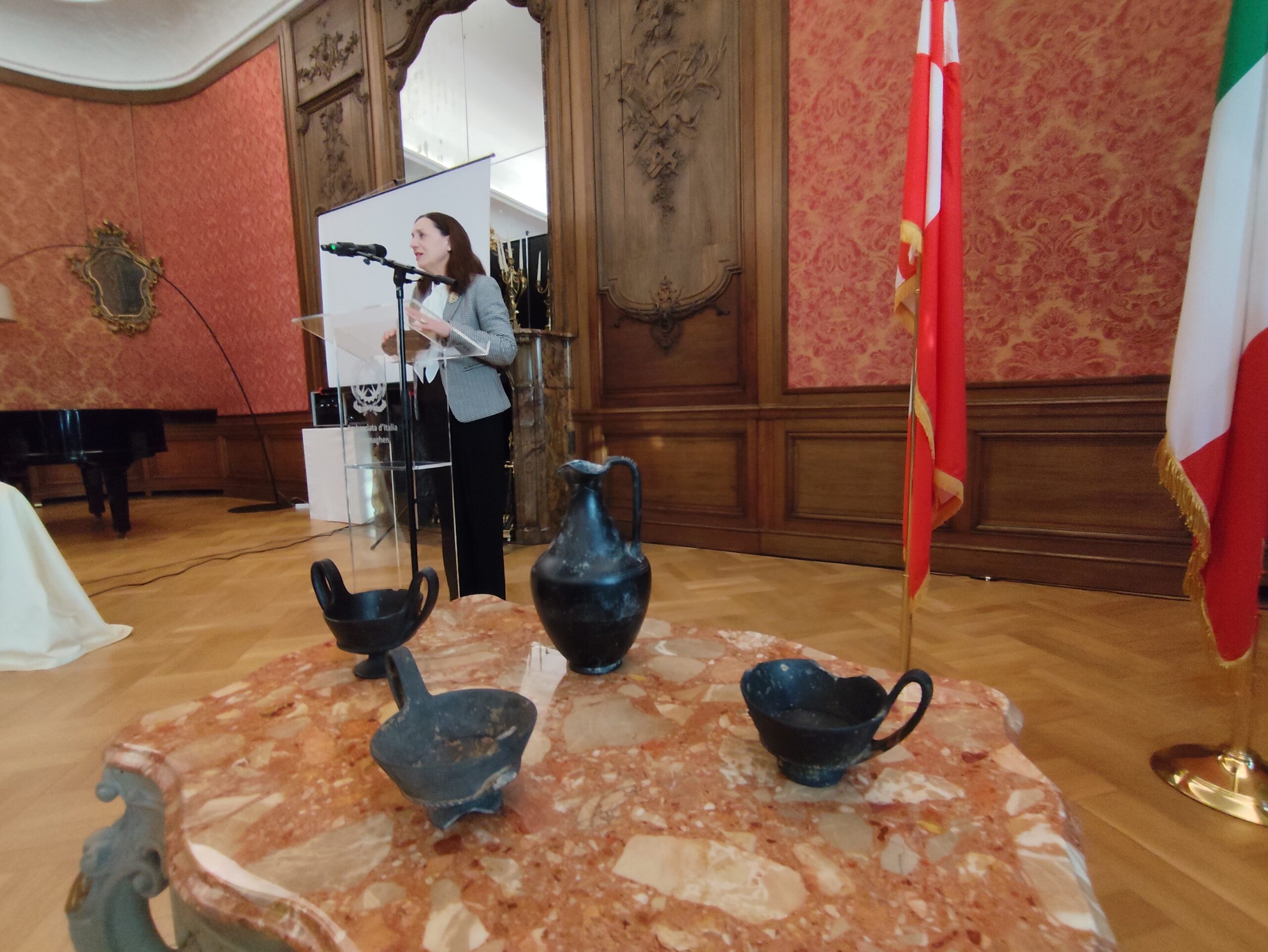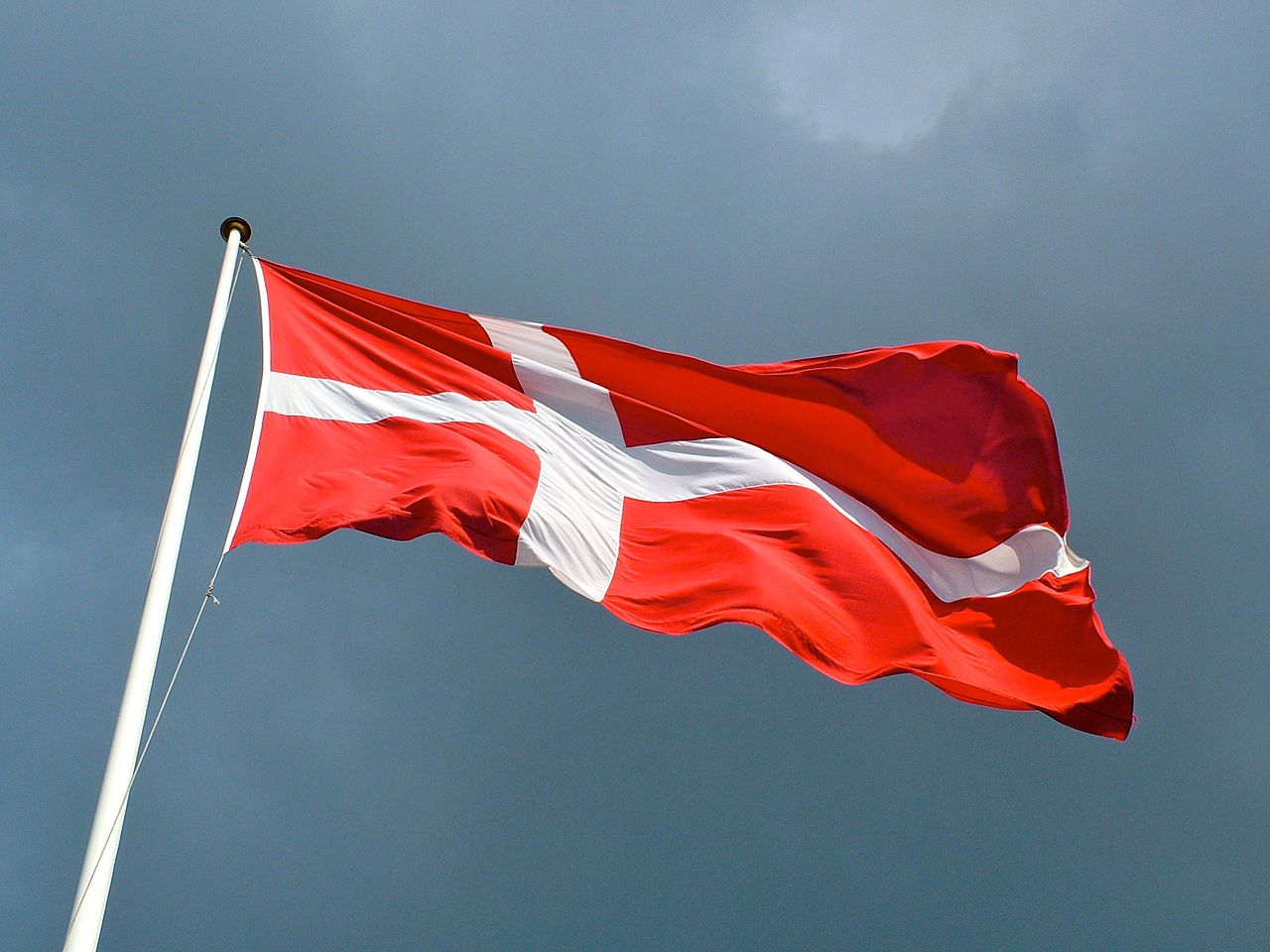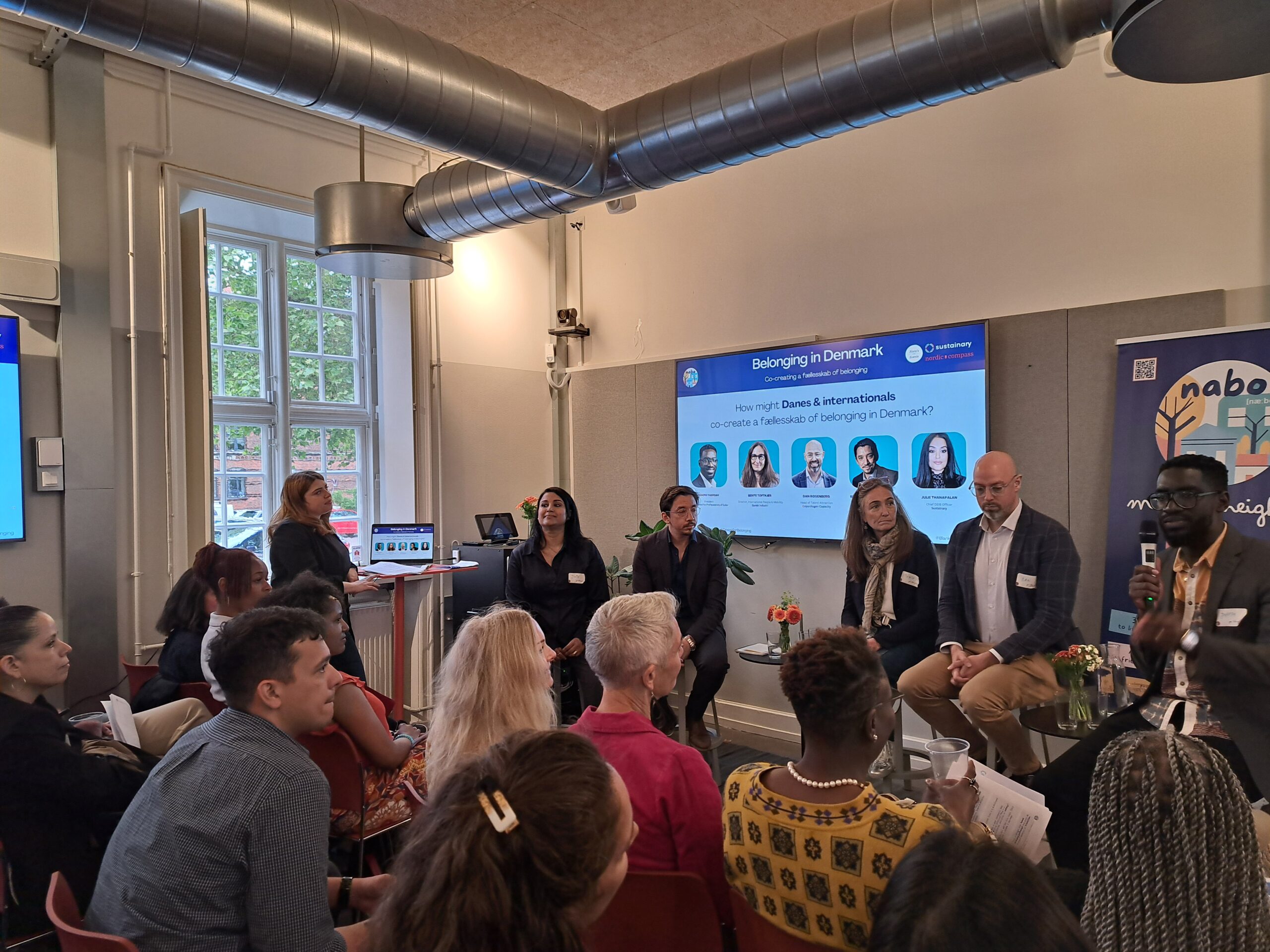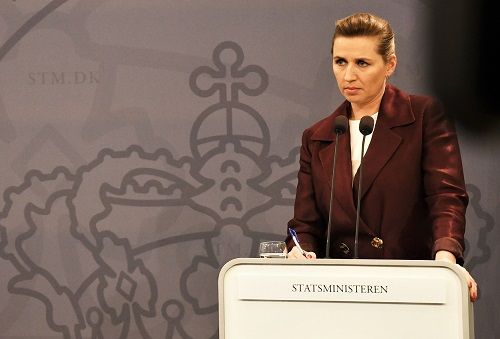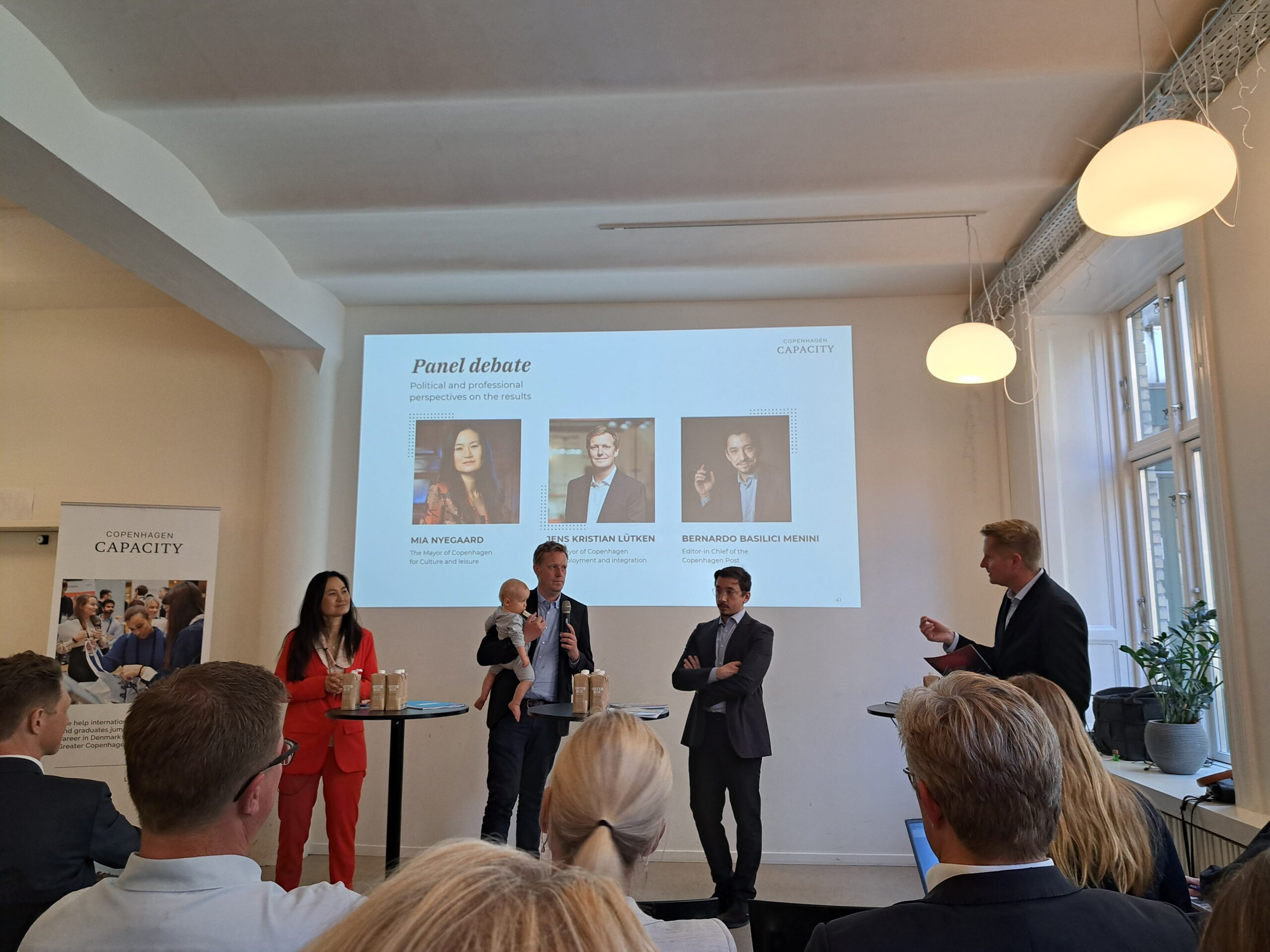A Danish family has returned three ancient artifacts to Italy after their father purchased them in the 1960s. The items, believed to have been taken from an Etruscan tomb, were handed over to the Italian authorities yesterday during a ceremony at the Italian Embassy in Copenhagen.
This closed a circle that was first opened more than 60 years ago, in the late 1960s, when the Danish citizen Bent Søndergaard, on vacation in Italy, was approached by three men who offered to sell him three clods of earth.
The men claimed the clods contained artifacts and that the transaction was legal. Although he was uncertain, Søndergaard purchased the items. After cleaning the soil, he found objects that seemed to be from the Etruscan period. He brought them back to Denmark, where they remained with his family for several decades.
After Søndergaard’s death last spring, his children decided to fulfill his wish to return the objects to Italy. “Of course, they must be returned. They should never have been removed,” said Mads Herman Søndergaard, one of his children.
The family asked for the help of archaeologist Christos Tsirogiannis, an expert on ancient artifact trade networks, to assess the items. Tsirogiannis confirmed that the objects were consistent with Etruscan artifacts from around 600 BC. The artifacts still show traces of fused soil, indicating their age.
The family contacted the Italian Embassy in Denmark, which forwarded the case to authorities in Rome to begin the process of returning the items. And this takes us to yesterday.
Mads Herman Søndergaard said “The artifacts were always kept in a box, so we never felt attached to them. We hope for a safe return to Italy.” According to what he said to DR, while his father did not want to separate himself from the objects in life, before his death, one of his last wishes was that the artifacts would return to Italy.
“I express my gratitude for the return of four precious Etruscan archaeological artifacts to Italy. They represent the testimony of an extraordinary civilization, and I am sincerely pleased that they will now go back home and contribute to research on Etruscan history,” commented the Italian ambassador Stefania Rosini.
“Let me then express my heartfelt thanks to the Danish citizens that made this possible, Mr. Peter Østbirk and Mr.Mads Herman Søndergård: their mindful decision to return the archaeological artifacts represents a gesture of deep respect not only for the Italian cultural heritage but also for the value that culture represents in uniting people, strengthening the capacity of mutual understanding and building a peaceful society. In doing so, our two friends have also paid respect to the principles of international cooperation in the protection of artistic and archeological assets – and, more broadly, of love towards Italy,” she added.
The restitution of ancient artifacts and artworks is a sensitive issue in relations between governments. Many countries were historically exploited, with their antiquities taken by European explorers during the 1800s. One of the most well-known examples is the Middle East.
Recently, many governments have filed lawsuits against countries and museums that hold these artifacts in an effort to reclaim them. Denmark has a strong reputation in this regard, known for its collaborative approach with the countries of origin.
This article was written by high school students from IIS Baronio in Italy, under the supervision of a Copenhagen Post journalist, to verify the accuracy of the news.

